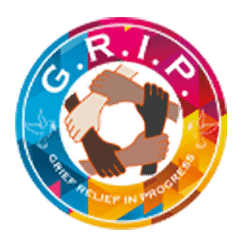II. Loss Due To Divorce
Divorce often produces traumatic mental, emotional, and physical experiences. Following the loss of a loved one, divorce is considered the second most impactful stressor experienced by adults. Interestingly, research indicates that men often have a more difficult time getting over a divorce. Studies indicate that men who get divorced are more likely to die at a younger age than the norm, and they tend to develop heart conditions. It is believed that females have less difficulty because they are more willing to seek and accept support as they address their loss.
Since divorce occurs due to any number of reasons, it is especially important for individuals to view it in as many positive ways as possible. Their views regarding divorce will impact the manner and how effective they are able to cope with divorce. Thus, it is crucial for divorcees to view divorce as an opportunity to start fresh and establish a new life while learning from past experiences and mistakes. Men and women need to discover who they are in the context of divorce. As stated above, men tend not to accept support as readily and as often as females. As a result, females have better divorce outcomes than that of males. Generally, it takes one year of recovery for every five to seven years a male was married. Females generally follow this ratio as well. For you, it could be less, or it could be more.
III. Children Experience a Sense of Loss Due To Separation from Caregivers
(Children of Divorced and Incarcerated)
Technically speaking, divorce is an event that occurs between two adults. However, some divorces involve children. When it does, the children are often impacted in negative ways. When divorce proceedings are contentious, often the children are perceptive enough to know that there is an adversarial relationship that exists between the potential divorcees – even when parents try to conceal the fact. Sometimes young children have difficulty understanding what is taking place. Adolescents tend to manifest anger and resentment. They have difficulty accepting changes that interrupt their home lives, school lives, and social circles. They also tend to blame one parent disproportionately over the other for the dismissal of the marriage.
Children of divorced partners may experience fluctuating levels in domains of functioning areas. For example, mental health and behavioral issues are two major areas in which children of divorced caregivers experience significant problems. Behavior problems of children of divorced parents can be seen in ways such as children exhibiting more delinquency, aggression, and impulsive behaviors. Adolescents may also start indulging in drinking alcohol, experiment with drugs, and engage in sexual activities.
Children of divorced or incarcerated parent(s) engage in the above earlier than their peers of non-divorced parents or caregivers. Research indicates that children of divorced parents – despite the age, culture, or gender – tend to have more psychological problems at a higher rate than their peers of non-divorced parents. Similarly, children of incarcerated caregivers react to their circumstances in much the same way as children of divorced caregivers. Data indicates that up to five million children have at least one parent incarcerated.
Children of incarcerated caregivers need the same support as children of divorced caregivers because children of both parties are impacted in similar ways. Thus, there is a need for coaching children and adolescents during this potentially devastating period – a time of potential high levels of anxiety and depression.
IV. Loss Due to Death of a Pet
When a person experiences the loss of a loved one, people express their sympathy and empathy towards the one experiencing the loss. Unfortunately, when one loses a pet, some do not express the same level or kind of sympathy and empathy. Some people do not understand why a person grieves intensely over what they might refer to as “just a pet.” They do not comprehend the notion that some pet owners considered the pet to have been an integral part of the family.
Pet owners celebrate their pets’ birthdays, take pictures of them, record various events involving them, and carry pictures of them in their wallets. In addition, some pet owners establish wills for their pets. Pet owners signify that their pets provide unconditional love, acceptance, emotional support, presence, and companionship. That is, a significant bond is established between the pet and its owner.
At the death of the pet, it is not unusual for the owner or others in the family to feel intense pain; they may even feel overwhelmed. Feelings for the pet may be just as intense as if it was the death of a human. It is important for pet owners to find ways to cope with their loss and experience pleasant memories and smiles in place of sorrow and tears.



